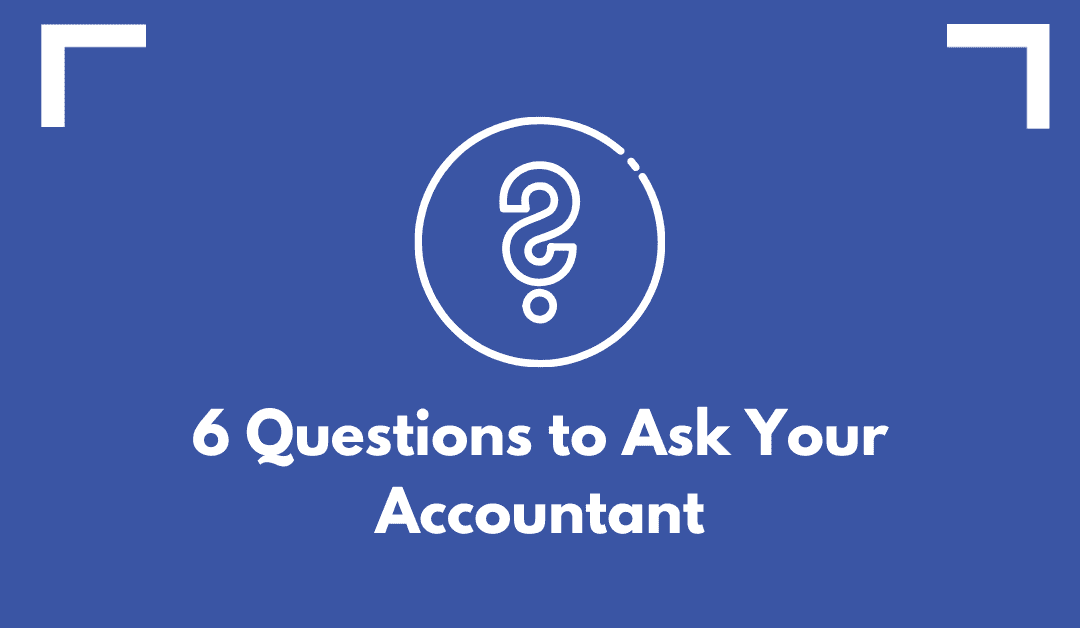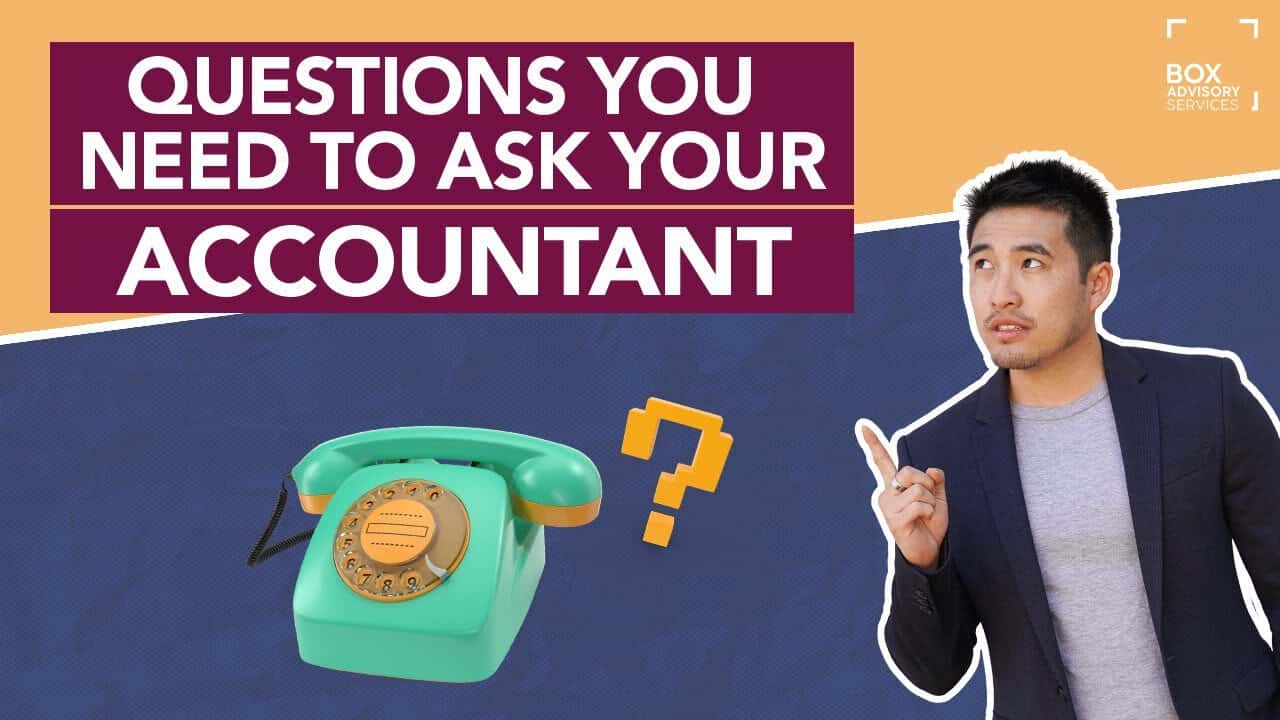
BY
|
6 Questions To Ask Your Accountant That Can Save You Thousands
So, you may have recently switched accountants, or you may have just started a new business venture. Perhaps you’ve just figured that you should start taking advantage of the fact that you have an accountant and you need to get your business affairs in order.
Choosing the right questions to ask your accountant can be difficult. Some accountants aren’t so proactive while others stick to just giving you the same conventional advice.
Being an accountant myself, I noticed that a lot of my clients weren’t necessarily asking the right questions. If we’re talking about the 80/20 principle, they were concentrating on the 80% that was giving 20% of the return. Questions like “how much can I claim on this form of expense?” or “when can you complete my tax return?”.
All valid questions, but the financial implications are negligible compared to if you were asking the questions that I’ll cover in the guide.
So let’s get stuck in!
Question #1: Is my current business structure suitable for my business situation?
Most business owners start with a straightforward business structure – usually either as a sole trader or a partnership if you’re going into business with someone.
But as your business grows and revenue increases, so does your business risk and tax liability.
There will come a stage where you’ll want to consider whether a sole trader or partnership is the right business structure to use once you’re trading at a certain revenue or risk level.
The solution is to consider a business structure like a Pty Ltd Company. This structure helps to reduce your risk, protects your personal assets and can significantly reduce your task bill as well.
Read our guide on Comparing Sole Trader vs. Company Business Structures
Question #2: How much tax am I expected to be paying this year?
Proper tax planning directly impacts the level of tax you’re expected to be paying.
Planning well ahead with your accountant to identify and establish tax strategies can significantly reduce getting hit by a big tax bill come end of the financial year.
Some of these strategies should be implemented as early as possible to give you the maximum time to execute these strategies.
For example, knowing what expenses can be used as deductions can guide you on your spending throughout the year to maximise your claims for business tax deductions.
With appropriate planning, you can have a reasonably accurate idea of how much you should expect to pay in tax so that you can set these funds aside to meet your tax obligations.
Question #3: What targets can be set for the business?
Peter Drucker’s famous quote “you can’t manage what you can’t measure” rings true for all businesses.
If you don’t know what you should be aiming for and how to track it, then how do you know if your business is financially successful?
Setting profit targets, personal income targets and revenue targets will guide your business decision making.
There’s also an added benefit that when it comes to dealing with stakeholders, such as banks and investors, that being able to show these numbers and target achievements is a great way to access additional investment opportunities when you need it.
Question #4: How’s my business performing year on year?
Closely tied in with question three, you need to be able to measure your business performance year on year to identify whether things are heading in the right direction.
For example, is your rent too high? Are you spending too much on marketing with reducing ROI? Are your profits slipping?
Being able to drill down on segments of your business in revenue, profitability and expenses will give you a distinct idea of which direction your business is trending. The added benefit is the ability to rectify any aspects that appear to be struggling by implementing new strategies.
Question #5: How much money have I withdrawn from the company?
I wrote an article about drawing money from your company, whether it be loans, wages or dividends.
But one thing you need to bear in mind is to analyse if you potentially may have either withdrawn too much or too little in the context of tax savings.
Withdraw too much, and you end up paying way too much tax in your personal tax return.
Withdraw too little, and you end up paying too much with the company.
Striking a balance is the key, and this requires an experienced accountant to be able to run the numbers to find out what the optimal situation is to maximise tax-saving opportunities.
Question #6: What upcoming tax updates will affect my business?
Tax law and policies are in constant flux.
The ATO is regularly issuing new rules and regulations that businesses have to follow and keep up to date. Areas such as the property market, FBT and the use of company cars are consistently changing.
Some of these can have significant financial implications if you’re not aware or planning carefully.
On the other hand, there are often opportunities such as grants and concessions that your business can take advantage of to further capitalise on savings for your business.
Consulting an experienced and informed accountant will ensure that every opportunity is taken to avoid or capitalise on these tax changes.
Key Takeaways
Having a close relationship and knowing what questions to ask your accountant is vital in significant financial improvements to your business.
If you haven’t already used these questions to ask your accountant about your business, then I suggest you start with this. You’d be surprised at what can come from these simple questions.
Box Advisory Services, has the added benefit of being a team of 100% Chartered Accountants. These are accountants who are well-versed in all aspects of running a business and are required to keep up to date with the latest changes in tax law to maintain their Chartered Accounting title. The benefit for business owners is that you’ll be taking on a business partner who can help you with all aspects of running your business.
You can easily dig into these questions and investigate the answers for yourself. Alternatively, you can just ask us to do it for you.
Sign up to our monthly newsletter where we share exclusive small business and contractor advice!
Disclaimer:
Please note that every effort has been made to ensure that the information provided in this guide is accurate. You should note, however, that the information is intended as a guide only, providing an overview of general information available to contractors and small businesses. This guide is not intended to be an exhaustive source of information and should not be seen to constitute legal or tax advice. You should, where necessary, seek a second professional opinion for any legal or tax issues raised in your business affairs.




